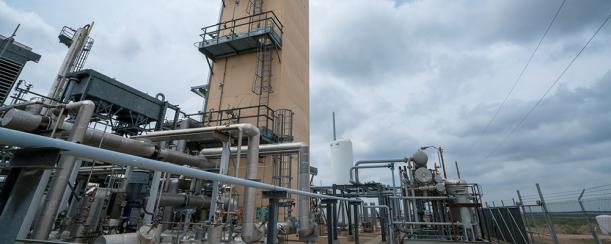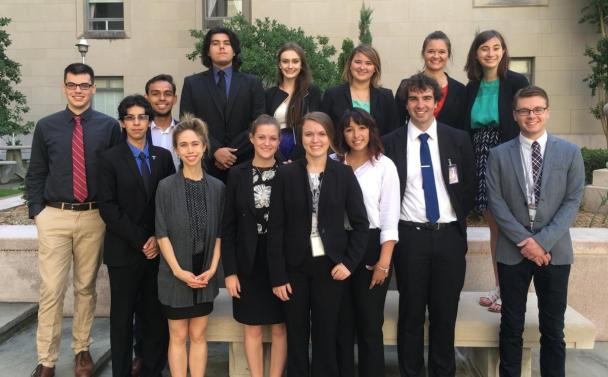Friday, June 30, 2017
By:
Halfway through the summer and I've set a new record for this internship position: publishing two articles with still five weeks to go.
To be fair, since I'm only the second person to participate in this particular internship, it's not a transformational feat, but I still feel a lot of pride.
The topic of interest this week is actually a topic that occurred last week: a House subcommittee hearing to discuss the draft legislation "Helium Extraction Act of 2017" on Wednesday, June 21. Originally I attended the hearing with the intention of writing a short blurb for the weekly newsletter, but during our group meeting on Monday it was decided we would do a full-length Bulletin* on the event as well.
The meeting, as Ranking Member Alan Lowenthal pointed out, was "unexpectedly timely." Earlier this month Saudi Arabia closed its borders with Qatar—cutting off Qatar's ability to ship overland transports—and Qatar subsequently shut down its two helium production plants. Qatar is second only to the U.S. in terms of world helium production, with Algeria and Russia ranked third and fourth, respectively. With the sell-off of the Federal Helium Reserve well under way, this means the United States government is lacking both domestic and international supplies of helium for federal agencies.
Though I found the hearing itself a bit dry—subcommittee members kept showing up late and asking the exact same question instead of checking with their staffers first—I found the topic quite fascinating. People my own age likely remember a few years ago when there was a shortage of helium that prevented birthday parties from brimming with traditional floating balloons, but helium shortages are so much more than a birthday party falling flat. Without helium, some of our well-known life-saving technologies, like magnetic resonance imaging (MRI), would not exist. To discover the Bureau of Land Management (BLM) disregarded the government’s request to leave 3 billion cubic feet of helium in the Federal Helium Reserve for federal users—BLM instead sold everything—and then to brush over that fact during the hearing makes my blood boil that they aren’t being taken to task for putting our research facilities at such a high risk of closing down.

However, I don’t feel entirely hopeless. My mentor Mitch showed me this week how our email server keeps track of how many times a specific subscriber opens each email, and one of the top openers on my ARPA–E article was Ernest Moniz. Know who that is? The former Secretary of Energy under Barack Obama, who negotiated the Iran Nuclear Deal! Seeing such an important person not only read my article, but forwarded it to others to read as well, fills me with optimism that reporting on these government acts can get the word out and can be an agent for change.
On a final note, the entire intern group spent Thursday on the Hill to tour the workplace of Eleanor and Riley. During the House Space Subcommittee hearing we attended, Ranking Member Ami Bera called us out!!
“Before I read my opening statement, I’m told that there’s a group of students from the Society of Physics Students today, and just want to recognize those students that are here in the audience because they are interning in a variety of places, including in our own House Science, Space, and Technology Committee. You guys represent the future, and that’s why we do what we do.”

*As of this posting, the AIP server is experiencing some technical difficulties and is not properly propagating data. If you see some extra blank spaces or spaces missing in the article, that is because the bug in the server has not been fixed yet.
Lisa McDonald
